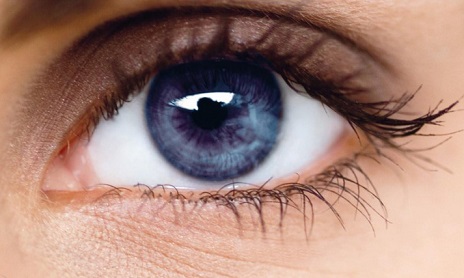Baking Soda Rescues Retinal Ganglion Cells And Ameliorates Visual Dysfunction Caused By Oxidative Stress Even In Glaucoma!
Nikhil Prasad Fact checked by:Thailand Medical News Team Jun 21, 2024 1 year, 5 months, 3 weeks, 5 days, 18 hours, 52 minutes ago
Ophthalmology Updates: Imagine if the solution to better eye health was as simple as adding a common household ingredient to your water. Recent research from the University of California San Diego that is covered in this
Ophthalmology Updates news report, suggests that bicarbonate, commonly found in baking soda, could play a crucial role in protecting our eyes from oxidative stress, a significant factor in diseases like glaucoma.
 Baking Soda Rescues Retinal Ganglion Cells And Ameliorates Visual
Baking Soda Rescues Retinal Ganglion Cells And Ameliorates Visual
Dysfunction Caused By Oxidative Stress Even In Glaucoma
Understanding Oxidative Stress and Glaucoma
Oxidative stress occurs when harmful molecules called free radicals damage cells, leading to various health issues. These free radicals are unstable molecules that can cause damage to parts of cells such as proteins, DNA, and cell membranes by stealing their electrons through a process called oxidation. In the eye, oxidative stress can damage retinal ganglion cells (RGCs), which are essential for transmitting visual information from the eye to the brain. When these cells are damaged, conditions like glaucoma can develop, leading to vision loss. Traditional treatments for glaucoma focus primarily on lowering intraocular pressure, but they don't address the root cause of the damage - oxidative stress.
The Role of Mitochondria in Eye Health
Mitochondria, often referred to as the powerhouses of the cell, are responsible for producing the energy necessary for various cellular functions. In RGCs, healthy mitochondria are vital for cell survival and function. Oxidative stress can impair mitochondrial function, leading to cell death and vision problems. Researchers have been seeking ways to protect these crucial cellular components from oxidative damage to improve outcomes for patients with glaucoma and other eye diseases.
Bicarbonate's Protective Powers
The study led by researchers at the University of California San Diego revealed that bicarbonate activates an enzyme called soluble adenylyl cyclase (sAC). This enzyme plays a significant role in maintaining mitochondrial health and protecting RGCs from oxidative stress. By adding bicarbonate to the drinking water of mice, researchers observed a remarkable preservation of mitochondrial function and improved survival of RGCs under conditions of oxidative stress.
How Bicarbonate Works
Bicarbonate helps in several ways:
-Enhancing Mitochondrial Biogenesis: It increases the production of new mitochondria, ensuring a steady supply of energy for the cells. This process is critical for the replacement of damaged mitochondria and for maintaining cellular health and function.
-Promoting Mitochondrial Dynamics: It maintains the balance between mitochondrial fusion and fission, processes essential for mitochondrial
health. Fusion helps mitigate stress by mixing the contents of partially damaged mitochondria as a form of complementation, while fission helps remove damaged mitochondria.
-Reducing Apoptosis: It prevents programmed cell death by inhibiting the activation of harmful proteins like BAX. BAX is a pro-apoptotic protein that promotes cell death, and its inhibition helps in protecting RGCs from dying due to oxidative stress.
Visual Function Improvement
The benefits of bicarbonate go beyond cellular health. In the study, mice treated with bicarbonate showed significant improvement in visual function tests compared to those that did not receive bicarbonate. This suggests that bicarbonate not only protects cells at the microscopic level but also helps maintain overall vision quality.
Researchers used a series of tests to measure visual acuity and function in the treated mice. These tests included optomotor response, where the mice's ability to follow moving patterns was assessed, and visual evoked potential (VEP), which measures the electrical activity in the brain in response to visual stimuli. The treated mice demonstrated better performance in these tests, indicating preserved and even enhanced visual function.
Potential Implications for Human Health
While these findings are promising, they are still in the early stages. The next steps involve clinical trials to determine if bicarbonate can have the same protective effects in humans. If successful, this could revolutionize the way we approach eye health, providing a simple and cost-effective method to protect against vision loss.
The ease of bicarbonate administration makes it an attractive potential treatment. It can be easily incorporated into daily routines by adding it to drinking water, making it accessible and user-friendly. Additionally, its low cost compared to traditional medications could make it a viable option for a broader population.
Conclusion: A Simple Solution with Big Potential
The discovery that bicarbonate can protect the eyes from oxidative stress opens new avenues for treating and preventing vision-related diseases. This common, inexpensive substance could become a powerful tool in maintaining eye health and preventing conditions like glaucoma. As research progresses, we may soon find that the key to better vision was hiding in our kitchen all along. With further studies and clinical trials, bicarbonate could become a staple in eye care, providing hope for millions at risk of vision loss.
The study findings were published in the peer reviewed journal: Antioxidants.
https://www.mdpi.com/2076-3921/13/6/743
For the latest
Ophthalmology Updates, keep on logging to Thailand Medical News.
Read Also:
https://www.thailandmedical.news/news/new-hope-for-age-related-macular-degeneration-vitamin-d-and-sulforaphane-s-synergistic-effects
https://www.thailandmedical.news/news/new-discovery-in-retinal-cell-protection-a-step-forward-in-preventing-blindness
